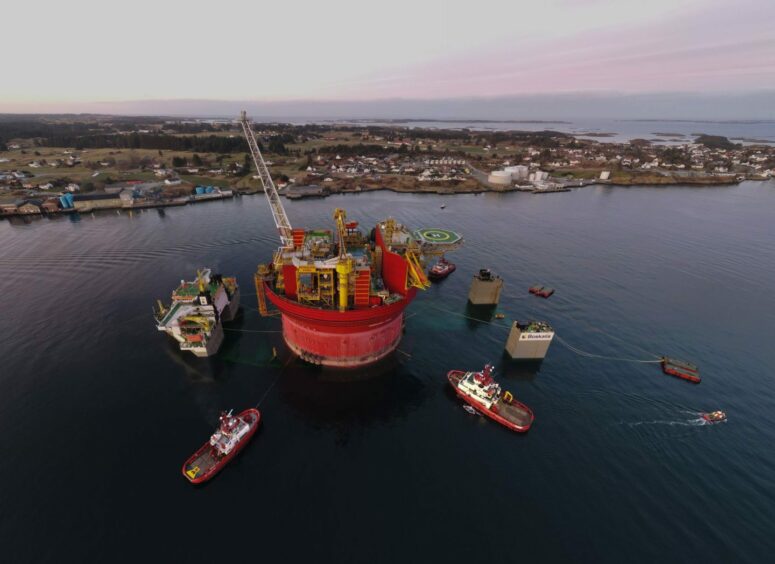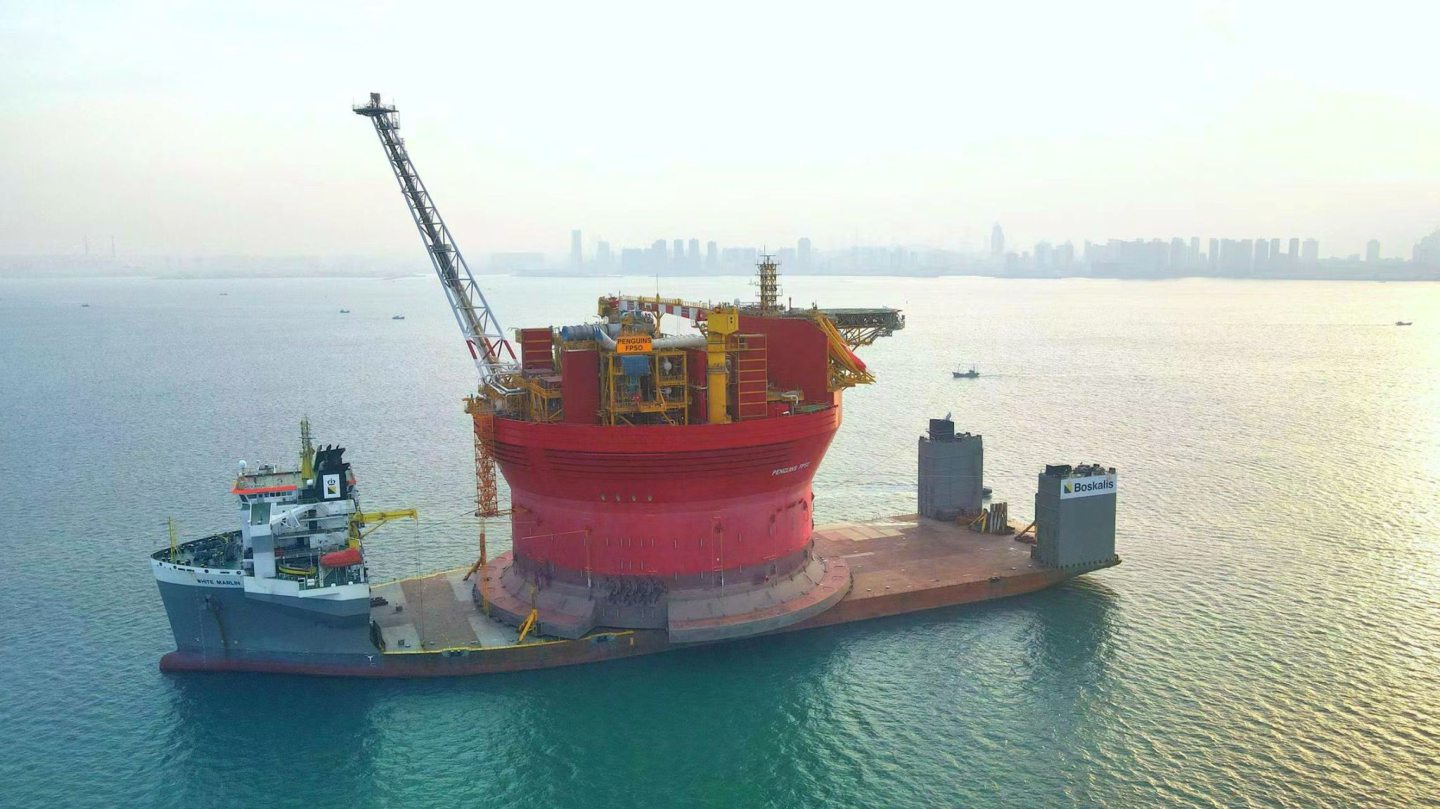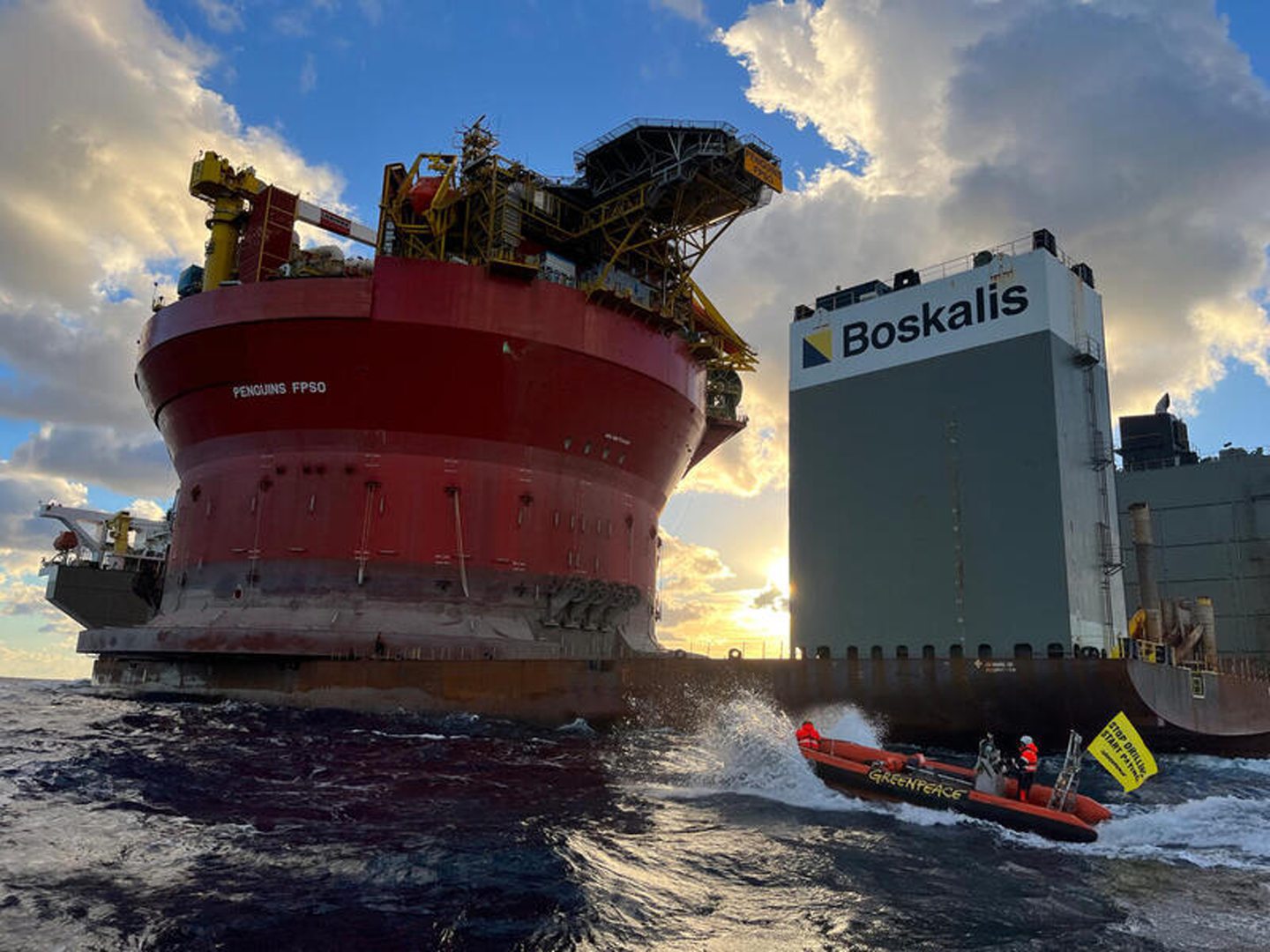
After a turbulent journey from China and more than a year in Norway, Shell’s Penguins FPSO has now reached its position at its namesake field east of Shetland.
Energy Voice understands the Penguins FPSO (floating, production, storage and offloading) vessel departed the yard at Haugesund last Thursday.
Shell’s Penguins project is a redevelopment of a hub once served by the giant Brent Charlie platform, with the new FPSO the first manned vessel built by the supermajor in three decades.
Sanctioning the project in 2018, Shell said it would unlock 80 million barrels of oil equivalent, create hundreds of jobs, and keep the gas hub producing beyond 2035.
Shell will transport oil produced from Penguins via tanker to refineries, with average peak production expected to be around 45,000 barrels of oil equivalent per day.
Meanwhile, gas will travel via the Far North Liquids and Associated Gas System (FLAGS) pipeline to the St Fergus gas terminal in northeast Scotland.
Penguins FPSO
Shell will be hoping the final leg of the Penguins FPSO’s journey will be smoother than its initial departure from China.
Issues at the construction yard in China linked to Covid saw major delays to the sailaway of the FPSO, with its departure pushed back from 2021 to 2023.
When the FPSO finally began its journey to the North Sea in January last year, Greenpeace activists boarded the vessel off the coast of Morocco as part of a protest.
Six activists spent 13 days occupying the Penguins FPSO as it travelled nearly 2,500 miles before disembarking when it reached Norway.
Following the protest, Greenpeace Southeast Asia executive director Yeb Sano addressed Shell CEO Wael Sawan directly, saying the occupation was “just the beginning.”
Shell condemned the protests and is currently suing Greenpeace for £1.7m in damages, stating the protesters risked being “dragged under” the vessel.
The oil giant said it respected the right to protest, but it must be done safely. Activists argued Shell exaggerated the risks.
Following the protests, Shell later encountered brownfield issues at the Penguins field, further delaying the project.
Alongside operator Shell, US supermajor Exxon Mobil holds a 50% interest in the Penguins field.
Discovered in 1974, the Penguins field is located 150 miles northeast of the Shetland.
First developed in 2002, oil and gas production from Penguins was originally tied back to the Brent Charlie prior to its decommissioning in 2017.
Recommended for you


 © Image: FFluor
© Image: FFluor © Supplied by Greenpeace
© Supplied by Greenpeace